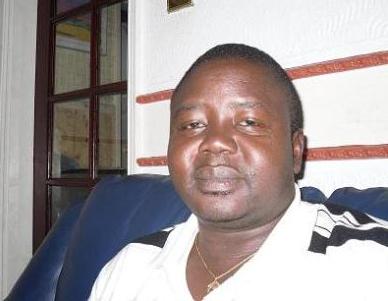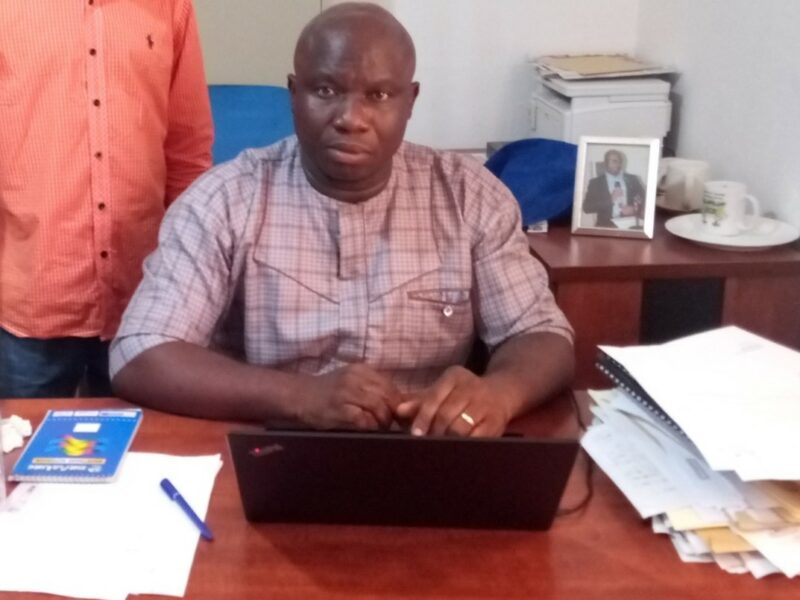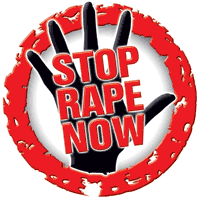Rape case puts IMC in dock
The allegation that a member of the ruling APC party was involved in a rape scandal has been doing the rounds in both political and social circles recently. The gravity of this case cannot be overemphasised. This is more so, when you consider the inherent impact on the lives of both the victim and the alleged perpetrator. The individuals involved, together with their families and friends have come under so much “avoidably unwarranted but expected” attention and stress that the issue has taken a completely different life of its own. There is no doubt that such a case is expected to get the attention of even the morally bankrupt. (Photo: Abdulai Mansaray, author)
However, it is the manner in which the case has been handled by the so called “media” that is now becoming the focal point; hence running the risk of relegating a very serious issue to a cesspit of organised gossip. The spin offs from the case have brought into question many issues ranging from the legal, constitutional, human rights, media regulation, press freedom, freedom of speech, gender equality etc. We have seen how the media has gone to town with the story. The feeding frenzy has seen the media stretched and broken every sinew of journalistic ethics. Furthermore, it is the reckless abandon with which the story has been handled that has left many people questioning the role of the media; and whether we have given the pipes to the wrong smokers.
Top of FormRepeating what has already been written or said is like flogging a dead horse, but let us take a cursory look at our legal obligations in relation to the media: Bottom of Form Sexual Offences Act 2012 41.
(1) No person shall publish or make public information that has the effect of identifying a person who is a victim of an offence under this Act.
A person who contravenes subsection (1) commits an offence and is liable on conviction to a fine not exceeding Le 10 million or to a term of imprisonment not exceeding three year.
Judging by the manner of the media coverage, you would be forgiven to think that such a law had never existed in our statute books. Yes, I can hear you say that “it was the victim who went on the air to narrate her ordeal”; hence took away any anonymity she deserves. That may have been done in ignorance, but what was the media’s legal and moral responsibility here? The issue has divided opinions across board, thanks largely to people’s moral calibration. This is no attempt to knit pick or demean the seriousness of the matter, but such a matter could have been handled better.
The alleged perpetrator “was” a known politician, who was summarily sacked from his post shortly after the story broke out. He lost his job even before he was tried by the courts. There is no question that case is an emotive issue, and as such is bound to draw a lot of passionate opinions and conclusions. But by sacking the accused so soon before the trial, does that not in itself rubber stamp a guilty verdict? Such a decision is bound to people thinking “He is guilty, that is why he was sacked”. Sierra Leone, like many other countries plies its legal wares on the presumption of innocence until proven guilty. It therefore goes without saying that sacking the accused from his post, even before he was found guilty by the courts is bound to connote a guilty verdict in many people’s mind. The decision may sound like political expediency at the expense of sound jurisdiction.
But if you think that the treatment of the accused was anything, spare a thought for the alleged victim. Before you rush for your moral thermometers, let us look at the issues at play here. Let us ASSUME that her story is true. Is it criminal for her to tell her story and seek justice? What was criminal about speaking up, for what she feels was a violation of her human rights, her right to choose and to say yea or nay? IF we are to go by the moral compass of some sections of the media, she is GUILTY as hell. But what was her crime? Some sections of the media have already accused her of seduction, blackmail, prostitution, everything and anything under the sun. Some have even questioned, “What was she doing there in the first place?” Talk about double jeopardy.
Notwithstanding the above implications, it is the role of the media in this matter that has generated a lot of tongue wagging. It is unfortunate that even respected and renowned news pedlars; lured by the attraction of the tag “breaking news”, relinquished all their journalistic instincts in this matter just to make a quick buck. We know that journalists trade in pain, but the flagrant disregard and insensitivity on display has left a lot to be desired.
As ironies go, it is the same press that is clamouring for freedom of speech and press freedom; all in the name of human rights and democracy. It is the same press that is opposing the libel laws of the Public Order Act, 1965; that the libel laws should not be “criminalised”. But the same press is happy to trample on the human rights of the same people it purports to educate, entertain and inform. I never knew that it was possible to “eat your cake and have it back”. The toad likes water, but not when it is hot. Thankfully, the Constitutional Review Committee is in full session. One of the most contentious issues that the Committee would have to deal with is the libel laws. If the Committee needed any further proof of the necessity to enshrine that aspect of the law, then it should look no further than read the realms of paper and listen to endless hours of air time that has dedicated to this case.
But turning and turning in this widening gyre is the lost translation from the IMC. It is body charged with setting the standards, policies and regulations of all media practice in this country. By definition, it is the custodian of the ethics governing the press. In collaboration with the legal sector, it is supposed to implement and ensure that all media activities are carried out within agreed parameters. In view of the current circumstances, it is fair to say that the behaviour of some media merchants in this matter puts the IMC right on the spot. The IMC has the moral and legal obligation to protect the public from the excesses of reckless journalism. It has the duty to uphold the tenets of journalism. It is one thing to publish reams and reams of media regulations, but it is another to uphold them.
The IMC has in its power to bring the culprits to book. Anything short of bringing these media piranhas to book will be tantamount to taking away the voice of the voiceless. Together with other statutory bodies, the IMC should do whatever is in its power, to not only discourage the practice of trial by the media, but also maintain one of the building blocks of our justice system; the presumption of innocence until proven guilty. If the IMC has any teeth, bare it, and let’s have some value for money. The accused and the victim may be on trial here, but this is more so for the IMC.
Stay with Sierra Express Media, for your trusted place in news!
© 2013, https:. All rights reserved.







Austin Demby
/
There may be a different take on the Deputy Minister being relieved of his responsibilities as Deputy Minister. As you rightly said this is a contentious issue for anyone, let alone one holding high office. The right thing to do would have been for the Deputy Minister to honorably resign. This is not an admission of guilt but it is an opportunity for the Deputy Minister to use his time to vigorously defend his innocence if he is indeed innocent. It may be difficult to carry on his public responsibilities to the nation while distracted as he defends himself in the judicial system and the court of public opinion. The Government was justified to let him go if he did not offer to do so himself.
25th September 2013